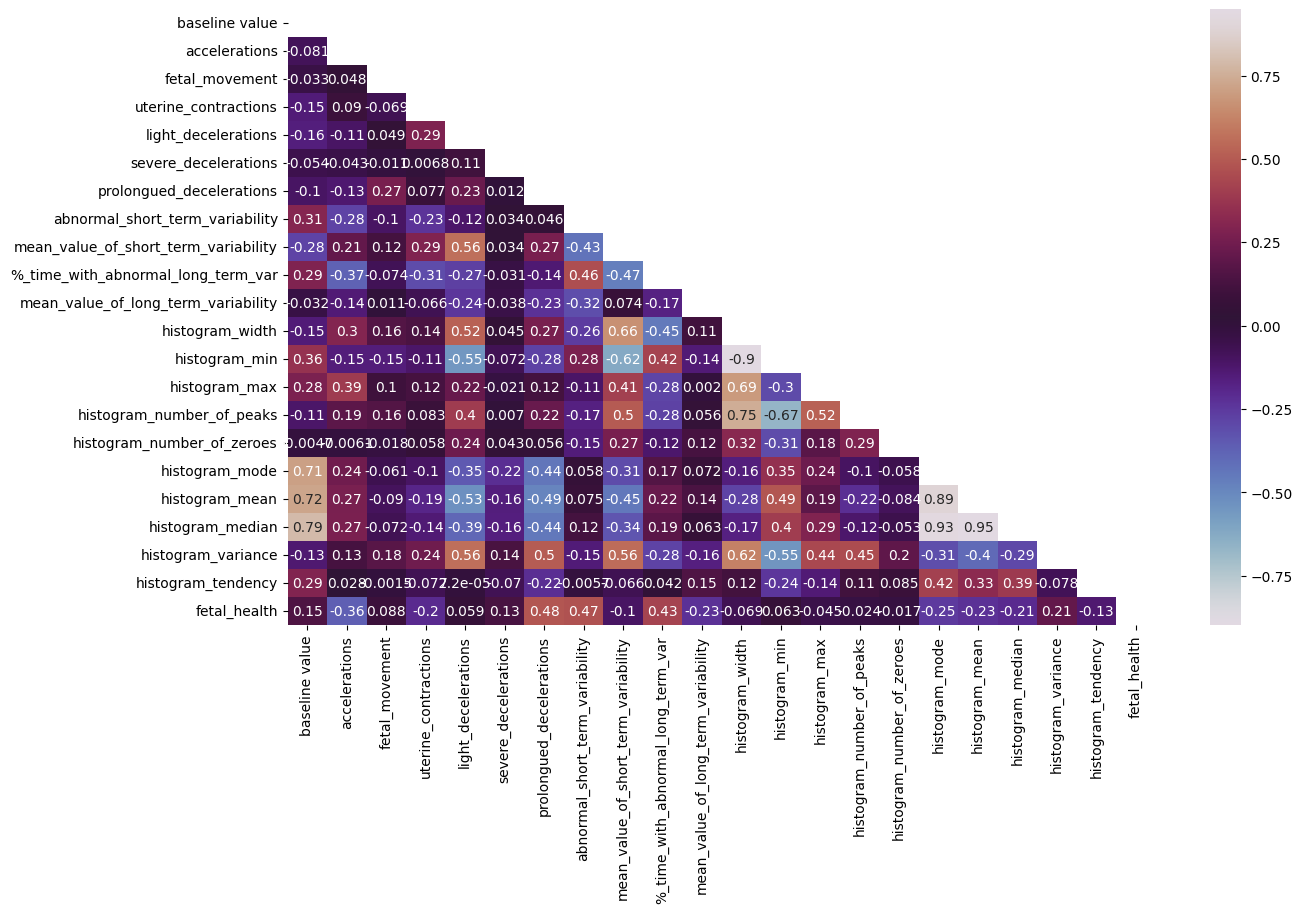Machine Learning-Assisted Approach for Fetal Health Status Prediction using Cardiotocogram Data
Mahmoud Abouelyazid
University of Evansville
Chen Xiang
University of Evansville
Abstract
Objective: This study aims to develop and compare machine learning models for predicting fetal health status using Cardiotocogram (CTG) data, while addressing class imbalance and feature scaling issues.
Methods: CTG data from 2126 records, classified by expert obstetricians into Normal, Suspect, and Pathological classes, was used. Synthetic Minority Over-sampling Technique (SMOTE) was applied to handle class imbalance, and Robust Scalar was used for feature scaling. Logistic Regression, Decision Tree, and Random Forest classifiers were trained and evaluated using various cross-validation techniques, including K-Fold, Stratified K-Fold, and 10-fold cross-validation. Hyperparameter optimization was performed using GridSearch. Model performance was assessed using accuracy, precision, recall, and F1-score metrics.
Results: The Decision Tree classifier achieved the best performance with an accuracy of 93.2%, precision of 94%, recall of 93.2%, and F1-score of 93.4% using SMOTE and Robust Scalar on the 10-fold cross-validation set. The Random Forest classifier obtained an accuracy of 86.9%, precision of 90.3%, recall of 86.9%, and F1-score of 87.8% under similar conditions. Logistic Regression showed an accuracy of 84%, precision of 88.3%, recall of 84%, and F1-score of 85.4% using SMOTE, Robust Scalar, and Stratified K-Fold cross-validation. Feature importance analysis revealed that histogram mean, % time with abnormal long-term variability, and abnormal short-term variability were the most influential features across the models.
Conclusion: This study demonstrates the potential of machine learning models in predicting fetal health status from CTG data. Data balancing with SMOTE and feature scaling with Robust Scalar proved beneficial in improving model performance. The Decision Tree classifier outperformed other models, indicating its suitability for clinical decision support in assessing fetal well-being. Further research is needed to validate these findings and explore the integration of such models into clinical practice.
Keywords: Machine Learning, Fetal Health Prediction, Cardiotocogram Data, Class Imbalance, Feature Scaling, Decision Tree Classifier


